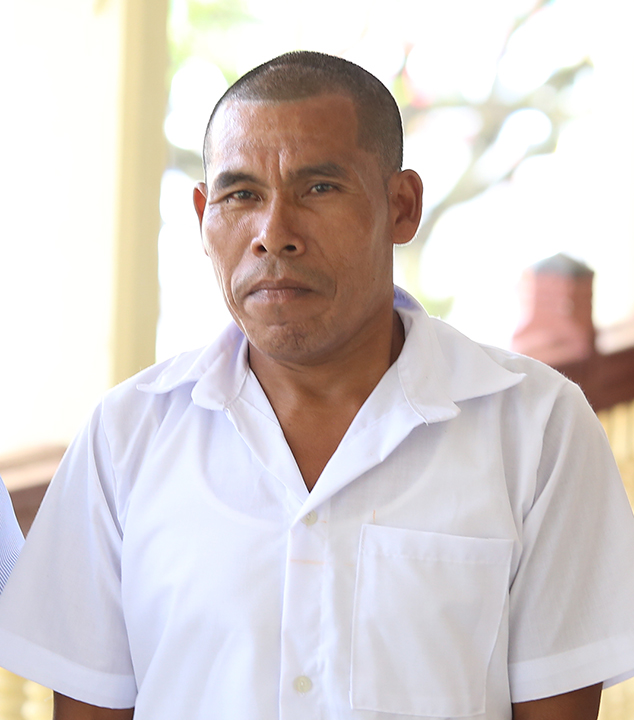Justice Jo-Ann Barlow yesterday ‘threw the book’ at David Alexander for his brutal rape of an 8-year-old girl, who had to be hospitalised afterward, saying that his case was the “worst of the worst” and the acts perpetuated by him were the types for which a life sentence was made the maximum penalty.
Shortly after the opening ceremony of the October criminal session in Georgetown, Alexander pleaded guilty to a charge of sexually penetrating the girl on February 24th, 2015. He was 31-years-old at the time.
In an attempt at a plea in mitigation, which failed to move the judge, attorney Clyde Forde sought to advance that his client was drunk at the time and was not fully aware of what he was doing.
In a strong reprimand, the judge told both counsel and client that the explanation was no excuse for his actions and ought not to be so made.
The judge said that while it was not the intention of her court to criticise persons who drink, a strong message needed to be sent to those who consume alcohol and are thereafter incapable of controlling their mental faculties, going on to commit offences and then using their drunkenness as an excuse.
“That [drunkenness] is no excuse,” the judge told Forde.
The lawyer had begged the judge to be merciful to his client and to consider that he had pleaded guilty at the first-given opportunity, which he said would save the court considerable time in otherwise having to conduct a trial.
He advanced, too, that the state would save financially as it would not have to pay for the transporting of witnesses from Essequibo to Georgetown to testify.
Noting, however, that she had found no factors to mitigate the sentence, Justice Barlow pointed out the position of trust which Alexander had violated when he assaulted the child, whom she noted began bleeding after the rape and had to be rushed to the hospital for surgery.
The judge said that while many cases were brought before the court, not many warranted the complainant having to be hospitalised and for the almost one month for which the child had to be hospitalised in this case.
This, the judge said, was indicative of the magnitude of the physical harm done to the girl’s body.
Meanwhile, from a victim impact statement read on behalf of the child by Childcare and Protection Officer Ira Ali, the court heard of the fears the child still experiences because of the assault.
The statement read detailed the child describing being hurt, afraid and confused and not knowing what to do because of the threats Alexander had made to take her life if she told anyone what he had done to her.
According to the statement, the child said that while she has to live with the memory of what was done to her, she is happy to be away from the accused and at the fact that she is once again able to attend school.
Taking all the factors of the case into consideration, and referencing what she said was the overwhelming evidence against the accused, the judge said that the case was the “worst of the worst,” and was the type reserved for the maximum penalty of life for such offences.
When given a chance to speak, Alexander said that he was very sorry for what he had done, while noting that he has four children. He added that he has been suffering in prison for the past three years.
In imposing the life sentence upon Alexander, Justice Barlow also ordered that he be exposed to counselling for sex offenders and be afforded whatever classes the prison system may have to help him deal with his addiction, if he still has that problem.
Being exposed to such programmes, she said, will aid in his reform to be reintegrated to society, if he is ever released from prison.
The judge told Alexander that he should use his time in prison to reflect on what he had done.
The state’s case was presented by Prosecutor Abigail Gibbs at the Georgetown High Court.

